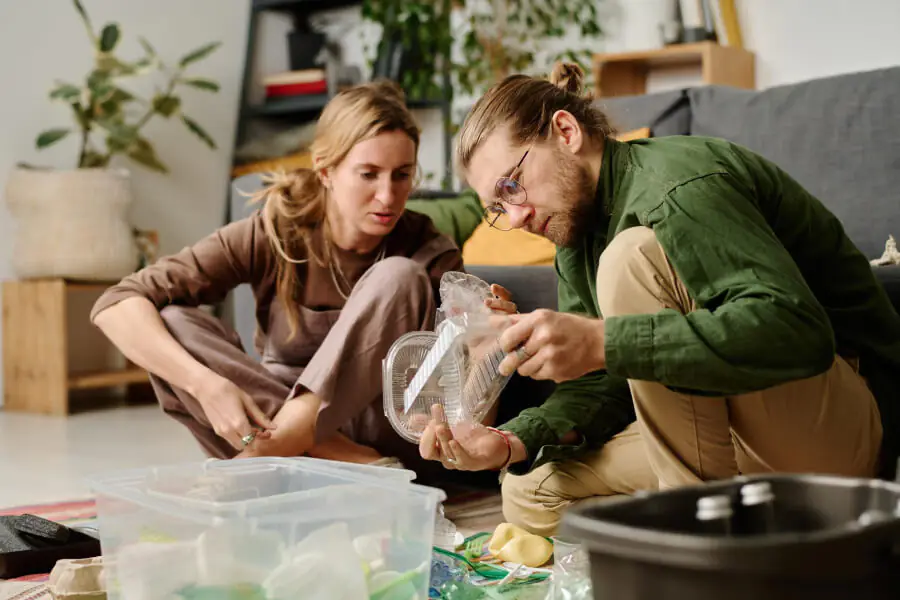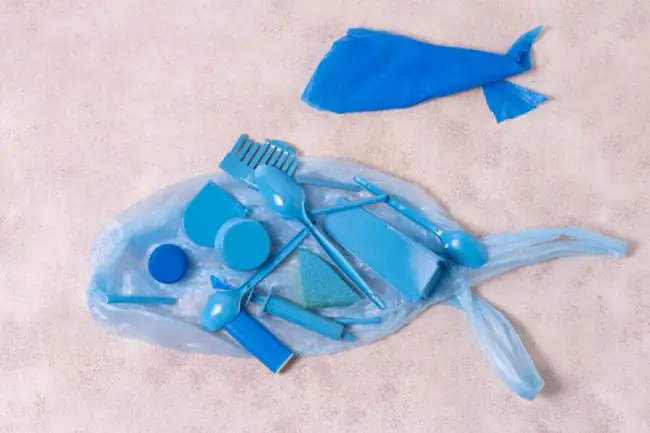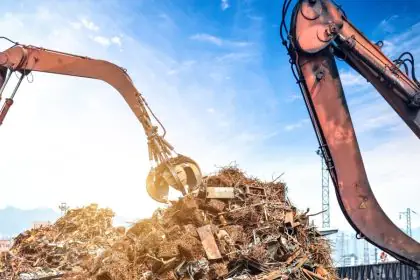In our modern world, plastic use is a major environmental challenge. From overflowing landfills to oceans filled with plastic debris, the impact of plastic pollution is undeniable.
While global industries play a significant role in plastic production, individual actions can also make a big difference.
These practical tips reduce plastic use in everyday life, making it easier to adopt eco-friendly habits and contribute to a cleaner, greener planet.
The Importance of Reducing Plastic Waste
Every year, millions of tons of plastic end up in landfills and oceans, affecting wildlife and ecosystems.
Plastic waste doesn’t biodegrade it breaks into smaller parts that persist in the environment. Plastic use is not only a threat to wildlife but also a growing concern for human health as microplastics enter our food and water supplies.
By reducing plastic use in our daily routines, we can help curb this issue and promote sustainable practices for a healthier planet.
The Environmental Impact of Plastic Pollution
The widespread plastic use has severe consequences. Plastic items, such as bottles, bags, and packaging, can take hundreds of years to break down.
During this process, they release toxic chemicals into the environment. The impact on marine life is particularly troubling, as animals often mistake plastic for food, which can lead to injury or death.
By reducing plastic use in our homes, we reduce the demand for plastic production and minimize these harmful effects.
Transform Your Daily Habits to Minimize Plastic Use
The best way to reduce plastic use is to add simple, eco-friendly habits into your daily routine. Here are some easy ways to make a big impact.
Rethink Your Grocery Shopping Routine
- Bring Reusable Bags: One of the simplest ways to cut down on plastic use is to ditch single-use plastic bags. Keep reusable bags in your car or purse for all shopping trips.
- Buy in Bulk: Purchasing food and household items in bulk helps minimize plastic packaging. Bring your own containers to refill staples like rice, beans, and nuts.
- Choose Unpackaged Produce: Skip plastic-wrapped produce by going for fresh, unpackaged fruits and vegetables. Many local markets now offer package-free options.
Choose Sustainable Kitchen Practices
- Switch to Glass or Stainless Steel: Glass containers, mason jars, and stainless-steel products are great alternatives to plastic storage options. They are durable, reusable, and free from harmful chemicals.
- Avoid Single-Use Plastics: Say no to single-use plastic straws, utensils, and cling film. Instead, use alternatives like reusable metal straws and beeswax wraps.
Eco-Friendly Personal Care and Hygiene Alternatives
The personal care industry is another major source of plastic use, but there are plenty of eco-friendly alternatives available.
- Bar Soap and Shampoo Bars: Traditional liquid soap and shampoo often come in plastic bottles. Go for bar soap or shampoo bars that last longer and are packaged in paper or cardboard.
- Reusable Razors: Switch to a metal razor with replaceable blades to get rid of plastic razors.
- Plastic-Free Toothbrushes: Bamboo toothbrushes are a sustainable alternative to plastic, and they are biodegradable.
Green Your Cleaning Routine
- DIY Cleaning Products: Reduce plastic use by making your own cleaning products. Use natural ingredients like vinegar, baking soda, and essential oils.
- Eco-Friendly Refills: Many stores now offer refill stations for cleaning supplies. Bring your own bottle to refill with eco-friendly cleaners, cutting down on plastic waste.
- Cloth Over Paper Towels: Use cloth towels or microfiber cloths instead of disposable paper towels.
Creative Ways to Reduce Plastic Use at Home
There are many creative ways to repurpose or reduce plastic use in your home.
Upcycling Plastic Items
Before throwing out plastic containers and bottles, consider how they can be upcycled. For example, use old plastic bottles as planters, or repurpose containers to store small household items.
Zero-Waste Solutions
Zero-waste living focuses on minimizing waste, including plastic. Look for zero-waste stores or online markets that sell plastic-free products. Simple swaps like reusable shopping bags and glass jars can make a big difference.
Try a Plastic-Free Challenge
A fun way to kickstart your eco-friendly journey is to introduce a plastic use challenge. Try a “plastic-free week” or month in your household.
Track how much plastic you typically use, and set goals to reduce your consumption. Challenge family members or roommates to join in, and celebrate your progress.
Getting Involved in the Community
While individual efforts are essential, collective action can also improve your impact. Join community initiatives to reduce plastic use and help spread the word about the environmental effects of plastic pollution.
Supporting Local Eco-Friendly Businesses
By supporting local businesses that focus on sustainability, you can encourage more companies to reduce their reliance on plastic. Look for eco-conscious brands that prioritize packaging-free and recyclable products.
Organize or Participate in Cleanup Events
Join or organize local clean-up events to help tackle the growing plastic waste problem. Cleanup drives and educational workshops can help raise awareness and inspire others to reduce their plastic use.
Long-Term Strategies for Sustainable Living
Adopting a sustainable lifestyle is a journey. The following strategies will help you make lasting changes to reduce plastic use over time.
Invest in Durability
Instead of purchasing disposable plastic products, invest in quality items that are built to last. Durable goods reduce your need to replace items frequently, cutting down on plastic use.
Circular Economy Practices
The circular economy is an alternative model that focuses on reusing and recycling resources. Support products that are designed for reuse, repair, or recycling, which helps reduce the environmental burden of single-use plastics.
Minimalism and Plastic-Free Living
Adopting a minimalist lifestyle can help you buy only what you truly need, avoiding unnecessary plastic purchases. Prioritize quality over quantity, and choose products with long lifespans.
Conclusion
Reducing plastic use in your daily life is an achievable goal that benefits both the environment and your health.
By making small, sustainable changes like using reusable bags, choosing plastic-free alternatives, and supporting eco-conscious businesses you can play a vital role in the plastic waste crisis.
Start today by trying a few of these tips and see how easy it can be to embrace a more eco-friendly lifestyle.
FAQs
How can we reduce plastic in everyday life?
Use reusable bags, containers, and bottles. Choose products with minimal or no plastic packaging.
What are 10 ways to reduce plastic pollution?
Bring reusable bags, Buy in bulk, Avoid plastic bottles, Use bar soaps, Go for bamboo toothbrushes, Recycle properly, Support sustainable businesses, Reduce packaging waste, Participate in local clean-ups, and Spread awareness about plastic use.
How can we replace plastic in daily life?
Swap plastic bags, bottles, and containers for reusable alternatives made of glass, stainless steel, or bamboo.
How can we make plastic eco-friendly?
Reduce plastic consumption, recycle, and support companies that use biodegradable plastics or adopt circular economy practices.






